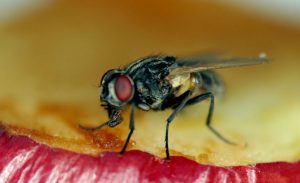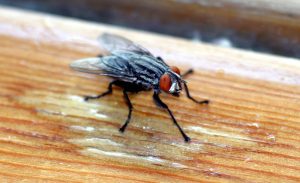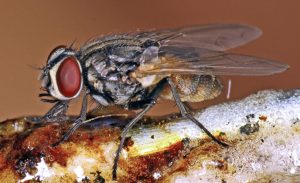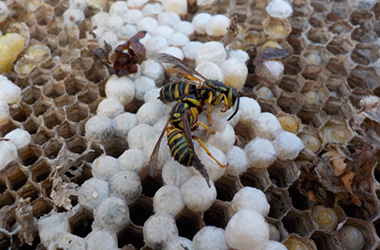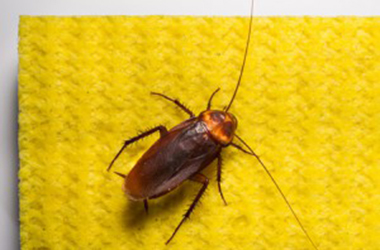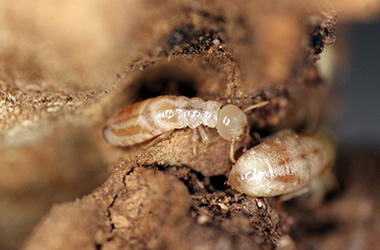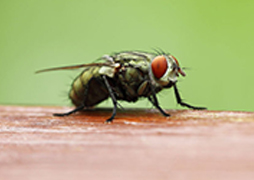
House Fly Facts
- Color: Gray or black
- Appearance: Four black lines running accorss their thorax
House Fly Behavior
Primarily active in the summer and found in more places on the planet than virtually any other insect, the house fly accounts for more than 90 percent of all flies in human habitations. Despite relatively short adult house flies’ lifespans of two weeks to a month, these insects produce huge broods that can quickly lead to infestation. With a well-earned reputation for spreading disease and an increasing immunity to pesticides, house flies may pose serious health threats to humans and pets.
Typically, females are larger than males but both have red, compound eyes and sponging-sucking mouths used to eat liquid and saliva-dissolved food stuffs. House flies are active during the day and will hide or rest in high places to avoid detection and threats.
House flies’ eggs are typically laid amongst larval food sources and hatch within a day. Known as maggots, the fly larvae are pale white, 3 – 9 mm long and legless. After 14 – 36 hours, maggots will move to a cool, dry spot and transform into reddish-brown pupae from which adults wills then emerge. Females can mate as soon as 36 hours after emerging from the pupae.
- How to Get Rid of Flies
- Fly Infestations
- Health Concerns
Flies Photos
4 Seasons Pest Control

Satisfaction Guarantee
What it includes*
-
Ants
-
Crickets
-
Fleas
-
Mice
-
All Roaches
-
Scorpions
-
Spiders
-
Ticks
-
Wasps
-
Other*

